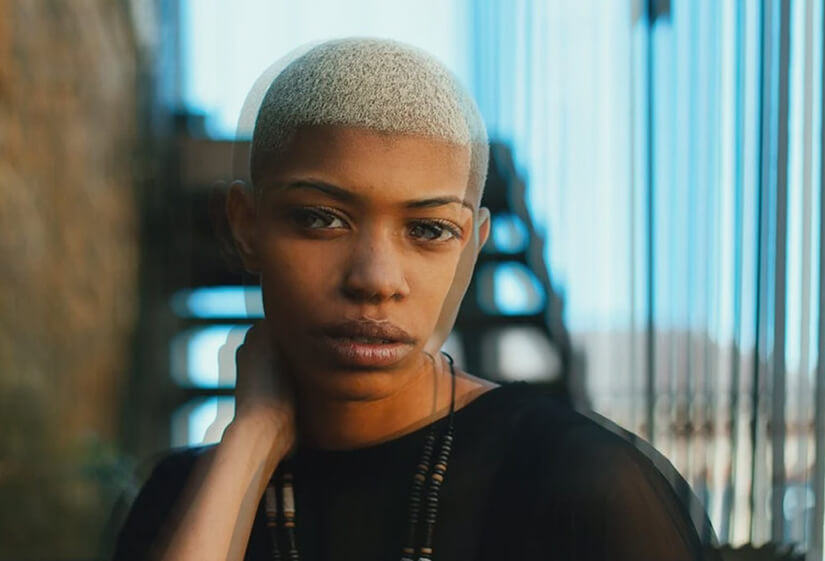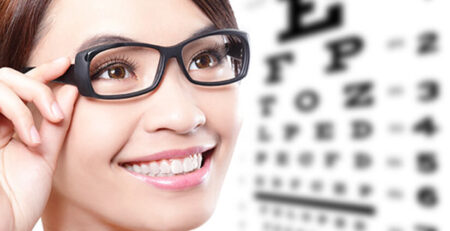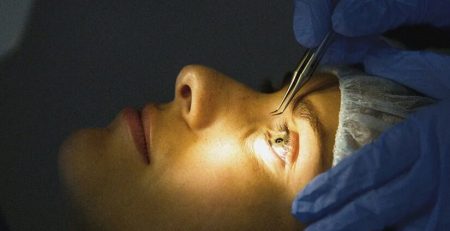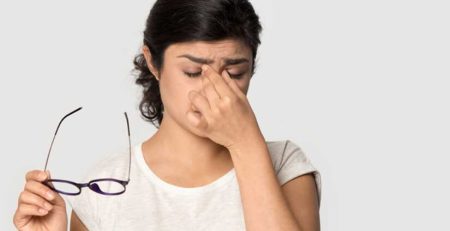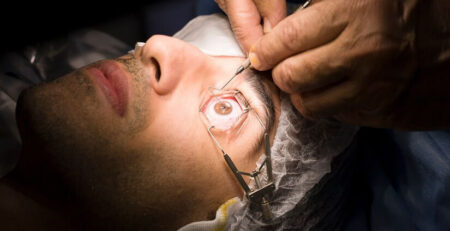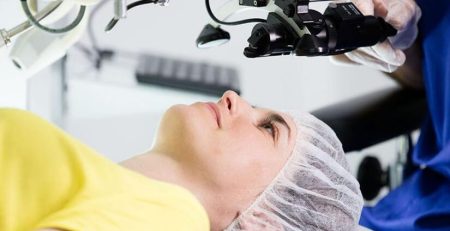Double Vision in One Eye: Treatment & Causes
Have you ever opened your eyes and found things strangely out of focus, seeing double when looking through just one eye? It can be an unsettling experience, leaving you wondering what went wrong. But don’t worry, you’re not alone, and most importantly, there are solutions!
This blog will guide you through the causes and double vision treatment in one eye, providing practical insights and advice.
What is Double Vision?
Double vision, or diplopia, refers to seeing two images of a single object. When this occurs in only one eye, it’s known as monocular diplopia. This is different from binocular diplopia, where both eyes must align to see a single image, but any misalignment results in seeing double. Monocular diplopia tends to persist even when one eye is closed, indicating it’s related to issues in that particular eye rather than alignment between both eyes.
Why Does Double Vision Happen in Just One Eye?
You might be wondering, “Why am I seeing double in one eye?” The answer lies in the complex structure of your eye, which consists of the cornea, lens, and retina. Problems with any of these parts can lead to distorted vision. But what causes these issues? Let’s dive into some common double vision causes.
Common Causes of Double Vision in One Eye
- Corneal Issues The cornea is the transparent outer layer of your eye that helps focus light. Damage to the cornea, such as from a scar, infection, or irregular shape (astigmatism), can cause light to scatter unevenly, leading to double vision. Keratoconus, a condition where the cornea thins and bulges outward, is a major cause of monocular diplopia.
- Cataracts One of the most common causes of double vision in older adults is cataracts, a clouding of the eye’s lens. As the lens becomes clouded, light passing through is refracted unevenly, causing blurry or double vision.
- Lens Displacement Sometimes, the eye’s lens can shift out of place, a condition known as lens subluxation. This usually occurs due to trauma or genetic conditions like Marfan syndrome. When the lens isn’t in its correct position, it can cause light to refract incorrectly, leading to double vision causes.
- Refractive Errors Another cause could be simple uncorrected refractive errors, such as astigmatism, where the cornea or lens has an irregular shape. In such cases, the light entering your eye is not focused properly, resulting in monocular diplopia.
- Dry Eyes Dry eyes may seem like a minor problem, but it can significantly affect your vision. When your eye doesn’t produce enough tears, the cornea becomes dry and uneven, distorting light and causing double vision. People with chronic dry eyes often experience visual disturbances, including seeing double.
When to See an Eye Doctor?
If you experience sudden or prolonged double vision in one eye, it’s essential to consult an eye doctor in Delhi. Double vision, especially if it’s in one eye, could indicate an underlying condition that requires prompt attention. Conditions like cataracts, corneal disorders, or retinal problems need proper medical treatment to prevent vision loss.
Available Double Vision Treatment Options
The good news is that most causes of monocular diplopia can be treated or managed effectively. Here are some double vision treatment options depending on the underlying cause:
- Prescription Glasses or Contact Lenses If your double vision is due to refractive errors like astigmatism, prescription glasses or contact lenses can help correct the way light enters your eye, eliminating the double images.
- Cataract Surgery If cataracts are causing your double vision, surgery to remove the cloudy lens and replace it with a clear artificial lens is often recommended. Cataract surgery is a safe and effective procedure with a high success rate in restoring clear vision.
- Corneal Surgery or Laser Therapy In cases where corneal damage or irregularities are the cause, treatments like corneal transplantation or laser procedures (such as LASIK) can smooth or reshape the cornea, improving vision. In case of Keratoconus, C3R is done to stop the progression and rigid contact lenses or scleral contact lenses help in controlling diplopia.
- Eye Drops for Dry Eyes For individuals with chronic dry eyes, artificial tears or medicated eye drops can help lubricate the eye, reducing dryness and visual distortions. Managing dry eye syndrome often leads to a significant improvement in double vision treatment.
- Treating Underlying Medical Conditions In cases of lens displacement, your doctor may recommend surgery or other treatments depending on the severity. Timely intervention is critical to preserve vision and prevent long-term damage.
Home Remedies for Temporary Relief
If you are experiencing mild double vision and are waiting to see an eye specialist, there are some temporary solutions you can try at home:
- Lubricating Eye Drops: Over-the-counter artificial tears can relieve dryness and irritation that may contribute to double vision.
- Warm Compresses: A warm compress placed over the closed eyelid can help relax the muscles around your eye and relieve strain.
- Resting Your Eyes: Take regular breaks from activities that strain your eyes, like reading or staring at screens, to prevent worsening your symptoms.
Prevention Tips
While not all causes of double vision can be prevented, you can take steps to maintain good eye health and reduce the risk of developing conditions that might lead to double vision:
- Regular Eye Checkups: Routine visits to an eye doctor in Delhi can help detect problems early.
- Healthy Lifestyle: Eating a diet rich in antioxidants, staying hydrated, and wearing protective eyewear during high-risk activities can help keep your eyes healthy.
- Manage Chronic Conditions: If you have conditions like diabetes or high blood pressure, keeping them under control can help prevent eye-related complications.
Take the Next Step: Consult an Expert
Double vision in one eye can be more than just an inconvenience—it may signal a more serious eye health issue. Whether your symptoms are caused by cataracts, corneal damage, or dry eyes, early diagnosis and appropriate double vision treatment can restore your clear vision. If you or someone you know is experiencing these symptoms, consulting a renowned eye specialist is the best step forward.
Dr. Anisha Gupta, a leading eye doctor in Delhi, offers comprehensive eye care services, specialising in the diagnosis and treatment of conditions like monocular diplopia. Her expertise ensures you receive the best possible care tailored to your needs. Don’t let double vision affect your daily life – schedule a consultation with Dr. Anisha Gupta today to explore the most effective treatment options for your eyes!

